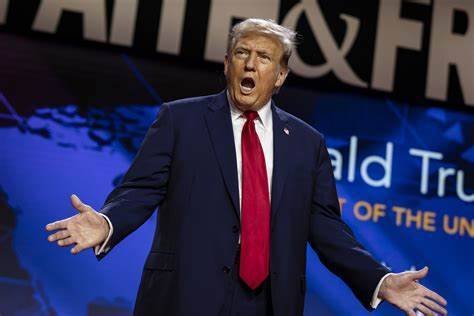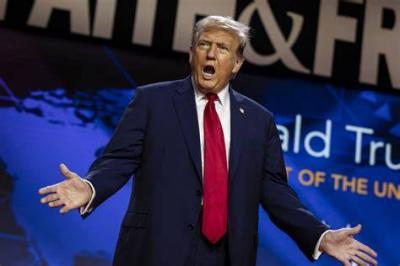The U.S. Supreme Court is addressing the issue of absolute criminal immunity raised by former President Donald Trump. The court's decision regarding Trump's immunity could delay his ongoing federal trial in Washington. It is expected the ruling will reject Trump's claim of absolute immunity, which would allow his trial on charges of conspiracy to overturn his loss in the 2020 presidential election to proceed before the upcoming elections in which he will participate as a Republican candidate. Trump's trial is scheduled to begin on March 4, ahead of the elections set for next November, but the court's decision could lead to significant delays.
The court decided on February 28 to consider this case, indicating that the trial has already been substantially postponed, with judges expressing skepticism about the absolute immunity claimed by Trump. Many judges, particularly conservatives, emphasized the long-term implications of their decision. When hearing arguments last April, conservative Justice Neil Gorsuch, appointed by Trump, stated, "We are writing a rule for future generations." Justice Brett Kavanaugh, also a Trump appointee, noted that "this case has significant implications for the presidency, the future of the presidency, and the future of the country."
It is unlikely the court will issue a ruling granting Trump absolute immunity. However, the scope and wording of the decision could further delay the trial, reducing the chances of Trump facing prosecutors before the November 5 vote. The judges may return the case to lower courts to sift through the allegations against Trump, complicating the proceedings for months regardless of the final ruling.
The 77-year-old Trump is facing four criminal cases, including allegations of falsifying business records to conceal payments made to silence adult film star Stormy Daniels about a sexual affair from 2006, which could have impacted his chances in the 2016 presidential election. An amount of $130,000 was paid to the former adult film star to buy her silence regarding the affair she claims to have had with Trump in 2006 when he was married to Melania. Trump denies this.
A grand jury in New York has convicted Trump on all 34 counts in the case alleging financial violations related to his campaign's payment of $130,000 to adult film actress Stephanie Clifford, known by her stage name "Stormy Daniels," in exchange for her silence about their relationship. As a result, Trump becomes the first U.S. president to be convicted of criminal charges.




